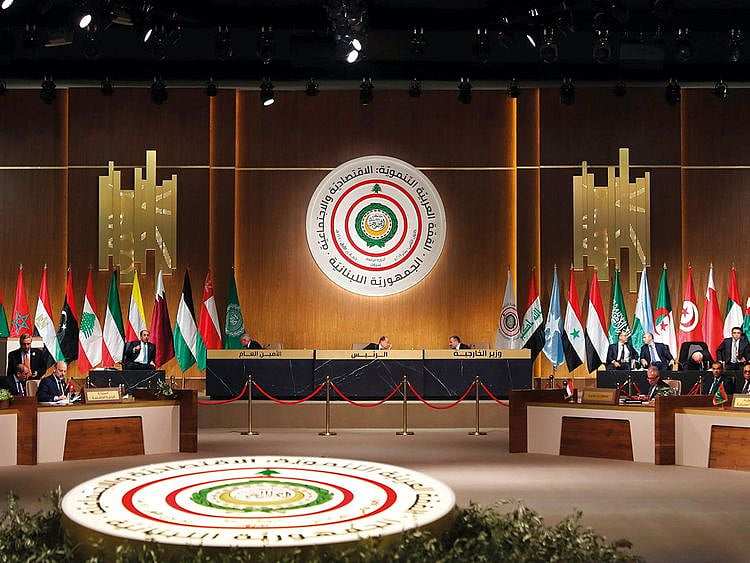Beirut - Lebanon’s factional politics has led to years of policy paralysis and obstructed reforms needed to boost investor confidence. More than eight months after an election, politicians have been unable to agree a new government.
Lebanon has one of the world’s biggest public debts compared to the size of its economy, largely generated through servicing existing debt and high state spending. It amounts to roughly 150 per cent of GDP.
The World Bank has estimated that financial transfers to the state-owned power producer alone averaged 3.8 percent of GDP from 2008 to 2017. A public-sector wage increase in 2017 and higher interest rates have added to pressures on the budget deficit.
Lebanon also has a current account deficit because it imports far more than it exports. Financing these two deficits has depended on critical financial transfers from its diaspora.
Minister’s comments
Earlier, speaking to Lebanese expatriates in Kuwait, caretaker Information Minister Melhem Riachi said the Arab economic summit could give a much-needed kick to Lebanon’s ailing economy, according to remarks carried by the state-run National News Agency. “The [Arab Economic and Social Development] summit in Beirut will pump some oxygen into the economy with the participation of Arab businessmen, coupled with the [potential benefits of the] CEDRE conference” that was held in Paris last year, Riachi said.
Riachi also assured the group that the Lebanese government will be formed eventually, despite the difficulties, stressing that the economy will not collapse “because of many reasons, one being [expatriates’] support for Lebanon.”
The government formation process has been stalled since May, and the absence of a government has heightened the risk that Lebanon will lose over $11 billion in funds pledged during CEDRE. To tap into the funds, the country must first enact a series of reforms that are contingent on having a fully functioning government.
But questions over this model have grown.
“At the heart of concerns is the recent slowdown in remittance/deposit inflows, which have traditionally funded a large part (if not all) of Lebanon’s financing requirement,” Goldman Sachs said in a Dec. 3 analysis.
The World Bank, in an October report, said Lebanon was exposed to significant refinancing risks. “Attracting sufficient capital, and in particular deposits, to finance significantly larger budgetary and current account deficits is proving challenging in light of slower deposit growth.” Lower oil prices have been seen by economists as a major cause of the slowdown, with many Lebanese working in oil-producing Gulf Arab states. Political instability and lower growth in Lebanon have also been cited as factors.
Economic growth rates have fallen to between 1 and 2 percent from between 8 and 10 percent in the four years before Syria’s civil war began in 2011.
Sign up for the Daily Briefing
Get the latest news and updates straight to your inbox
Network Links
GN StoreDownload our app
© Al Nisr Publishing LLC 2026. All rights reserved.
